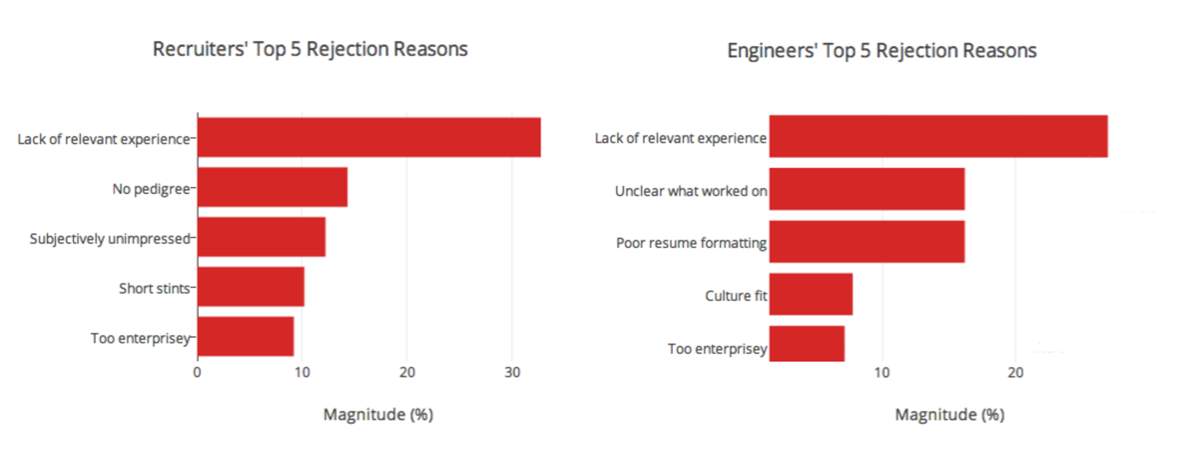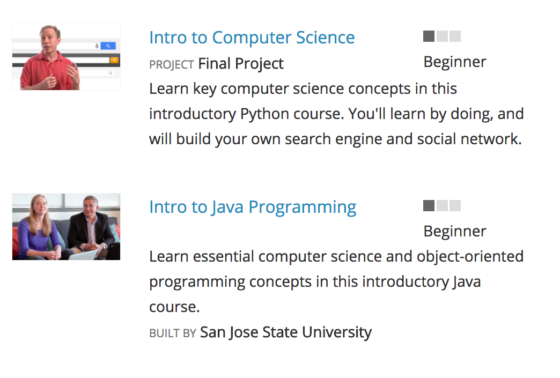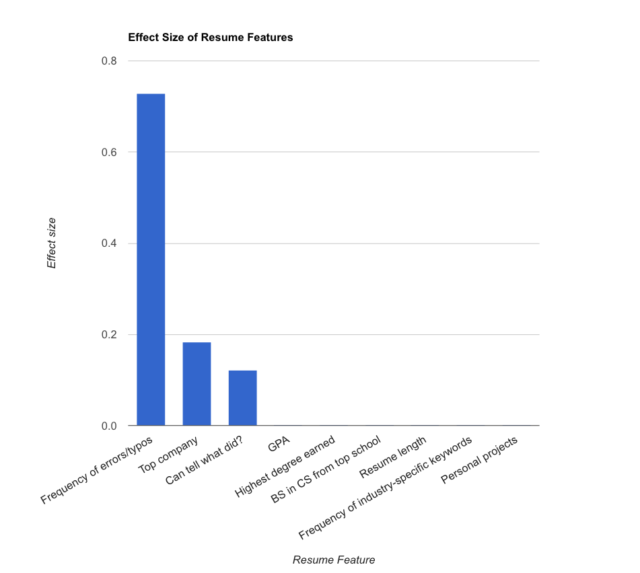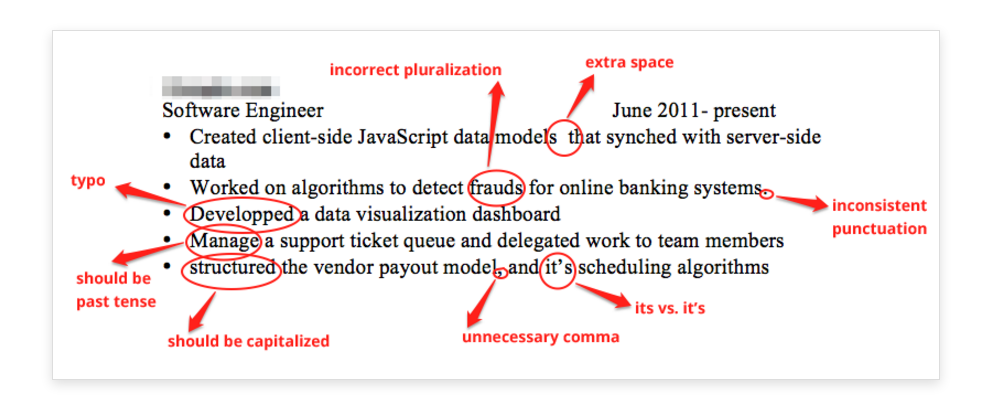How can we fix tech recruiting?

Technology fancies itself a meritocracy—more so than any other industry. In theory, coding ability is all you need to land a coding job. Not a rich dad or a fancy degree. Sadly, this utopian theory rarely plays out in practice. To have a true meritocracy, you need a level playing field. Those fields are hard to find. They’re even harder to make if you’re a recruiter.
“Anybody who thinks there’s a level playing field in tech is insane” says Aline Lerner. Aline is the co-founder and CEO of interviewing.io, an anonymous technical interviewing platform. She doesn’t think ‘meritocracy’ is a dirty word. But she understands why some people think it is, particularly in the tech recruiting world.
Aline used to be an engineer but she saw an opportunity to make a bigger impact as a recruiter. Being a recruiter in the Bay Area has convinced Aline that technical recruiting is broken. Finding good coders isn’t easy. Coding merit should matter more than anything else. But recruiters are missing out on great technical candidates because pedigrees and degrees don’t reliably signal coding ability. Aline wants to re-engineer the top of tech’s recruiting funnel by replacing resumes with merit.

Here’s how Aline thinks about tech’s recruiting problem and her advice for recruiters who want to fix it:
Resumes are the biggest barrier to entry in tech
Traditionally, resumes sit at the top of tech’s recruiting funnel. But they’re terrible. When Aline started recruiting in 2012, there were very few recruiters in Silicon Valley with technical backgrounds. As a former engineer, she stood out in a competitive crowd. She knew how to spot good coders and found herself working with candidates other recruiters “wouldn’t even touch,” based on their resumes.
“When I started recruiting there was still a huge emphasis on pedigree. Even the smallest startups with no brand insisted that everyone they interviewed came from 1 of 5 top schools, or 1 of 10 top companies. That left out a huge long tail of candidates who were, arguably, just as capable.”
The industry’s insistence on pedigree frustrated Aline. As a coder, she found almost no link between candidates’ school pedigree and how well they could code. In her experience, resumes don’t identify the best candidates. They just act as barriers for non-traditional candidates.
Based on her analysis of hiring data, Aline found that “lack of relevant experience” was the number one reason both recruiters and engineers gave for rejecting candidates’ resumes.

Aline acknowledges that experience can be important. But she thinks that most of the time “lack of relevant experience” is a euphemism for something else. Often it means:
I don’t think this candidate is smart enough
People can couch their rejections in excuses. But a lot of the time, they’re just being elitist. It’s easy to spot a candidate with a Stanford degree. It’s harder to spot raw coding ability. Nobody likes to think they’re an elitist. Making blanket assumptions about candidates based on social signals is easy. But it isn’t a good way to source the best coders.
There’s a resume-recruiter catch-22
Despite ample evidence that resumes are fatally flawed, they’ve proved difficult to kill. Resumes are an easy filtering option because they’re non-technical. Most recruiters aren’t coders, so they rely on non-technical filtering options. Aline argues that it’s unrealistic to expect all technical recruiters to have technical backgrounds. But, without technical knowledge, it’s difficult for recruiters to assess coders’ abilities. So, they have to rely on proxies like resumes. This is a specific example of a general recruiting problem:
As a recruiter, it’s really hard to tell if someone will be good at a job you have no experience doing.
According to Aline, technical recruiters face another, thornier problem that nobody likes to mention:
“Getting respect from engineers is one of the toughest things for a recruiter to do. You’re set up to fail, out of the gate. Every time you speak to an engineer there’s a window in which you have to prove yourself. Everybody knows it. It’s just the nature of the beast.”
So, what should an ambitious technical recruiter do?
Here’s what Aline recommends:
Get a feel for coding basics
Knowing some coding fundamentals can help recruiters gain respect and empathize with candidates. That doesn’t mean technical recruiters need to code well. Aline recommends reading The Non-technical Guide to Web Technologies by Tommy Chheng and taking a short ‘intro to coding’ class through Udacity or Coursera.

“Coding experience can definitely be a big advantage” says Aline. “But ultimately, recruiting is a sales job. It’s better to be a good salesperson than a good coder.”
If you’re reading resumes, know what matters and what doesn’t
To find the right candidates to sell (and sell to), recruiters need reliable shortcuts or ‘signals’ to filter candidates with. If they have to rely on resumes, they should know what to look for. Aline ran some data analysis, based on 300 technical interviews, to see which resume signals indicate how well candidates can code. Here’s what she found:
What doesn’t matter
- GPA
- A degree from a top computer science school
- Side projects (at least, not as much as coders expect)
What matters
- Experience working at a top company
- Whether candidates’ resumes make their previous job responsibilities clear
What really matters (way more than anything else)
- Typos and grammatical errors

So, contrary to popular perception, companies that hire coders from no-name schools aren’t ‘lowering their bar’ because schools aren’t a good measurement of bar height. Typos are a better measurement. And they’re usually easy to spot.

Ask for a writing sample
Despite the common stereotype of techies who can’t write and writers who can’t do math, the two skill sets aren’t mutually exclusive. In Aline’s experience, good coders are good writers. To assess writing skills, resumes and cover letters aren’t the best options. They’re formulaic, generic and constrained by strange customs. It definitely helps if you can actually tell what candidates did at each of their past jobs, though. Here are two resume writing samples Aline highlights on her blog:

She argues that the second sample is clearer and less jargony. It’s a lot easier to tell what the second candidate achieved and what the scope of their project was. In general, well-written resumes focus on teamwork and candidates’ actions. Badly-written resumes focus on technology and industry jargon.
It’s even easier to tell how well candidates can write if you ask them for a specific writing sample, aimed at non-technical readers. Aline recommends asking candidates to describe a project they worked on recently. If a candidate can explain their project to a non-technical audience, they’re probably a good communicator, a good thinker and a good coder.
Consider anonymous technical interviews
Ultimately, Aline advocates for blind technical interviews. Blind interviews remove many of the pedigree prejudices that resumes are rife with. Interviewing.io tracks how candidates do in practice interviews and then uses aggregate past performance data to identify the strongest candidates. Using this approach, over half of interviewing.ios’ candidates make it to onsite interviews at top companies, indicating that anonymous interviewing is a much better candidate signaling mechanism than resumes.
Anonymity allows companies to judge candidates based on the strength of their coding performance. Not their name, gender, race, degree or anything else. Aline doesn’t advocate for stripping candidates of their identities, though. Candidates’ identities matter—but they shouldn’t be a hurdle to getting interviewed. On interviewing.io, interviews focus on performance, not prejudice. Candidates can unveil themselves as they progress through further rounds of interviews.
Anonymity isn’t immune to problems, though. Aline discovered an unnerving gender gap in her beta user base. Men were advancing to the next round of interviews 1.4 times more often than women. So she developed a real-time voice masking feature to see whether hiding interviewees’ genders could help.
Blind technical recruiting is one piece in a large puzzle
Aline recently released the results of her voice modulation experiment. They were surprising. Contrary to what most people expected, masking gender had no effect on interview performance. Confused by these findings, Aline went back to her data to see what else could be causing the gender gap. She discovered that women were leaving interviewing.io roughly 7 times more often than men after doing badly in an interview. Women were self-selecting out based on their self-perception, not their actual performance:
“At least in these findings, it’s not about systemic bias against women or women being bad at computers or whatever. Rather it’s about women being bad at dusting themselves off after failing, which, despite everything, is probably a lot easier to fix.”
Even if women’s self-perceptions are easier to fix than societal oppression, fixing them isn’t going to be easy. Aline realizes that she can’t fix all of tech’s recruiting problems single handedly. Let alone society’s. The ‘top’ of the recruiting funnel starts early. Education, income, gender and race influence who gets to the top of anything, especially competitive funnels and fields. Lots of organizations, like Khan Academy, Code2040 and The Level Playing Field Institute, are working hard to fix other parts of the opportunity pipeline.
For now, we can combat recruiting’s meritocracy problem individually. We can ask questions, analyze data and challenge society’s perceptions. These steps may seem small. But they’re the only way the world has ever been changed.




